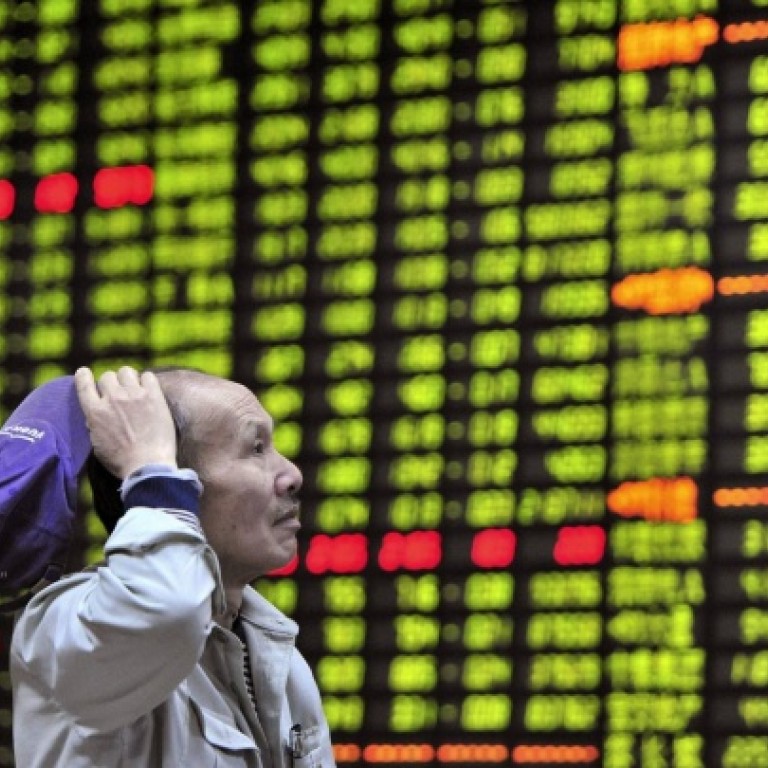
China market 'casino' scares off foreigners
Mainland share plays are a risky business, says analyst, shedding light on why trades go awry
For 10 years, a yawning chasm has existed between the performance of the mainland's stock market and that of its economy, says a veteran China expert, who likens the market to a casino - with all the risk that that entails for foreign investors.
Jonathan Anderson, a former resident representative at the International Monetary Fund for China and Russia and now an independent analyst, said the main reason for investors' dissatisfaction with the mainland stock market was the high valuation of the equities when they listed.
"The [Shanghai A-share] index started at a price-earnings ratio of something like 50 times in 2000," he said. "Thirteen years on … you have, in fact, almost zero returns."
The [Shanghai A-share] index started at a price-earnings ratio of something like 50 times in 2000. Thirteen years on … you have, in fact, almost zero returns
Anderson, who also worked for UBS and Goldman Sachs as their lead analyst on China, told the CFA Institute annual conference in Singapore yesterday that some investors bought stocks for the wrong reasons, then complained about the A-share market's failure to match the broader economy's stellar growth. There were "usually two possible explanations" for the divergence in performance, he said.
"There is something wrong with the corporate sector, or there is something wrong with the investors. Of course investors will never admit there's something wrong with them. So the assumption is there must be something wrong with the corporate sector," Anderson said. "But today the problem in China is not the corporate sector. Actually the A-share market is like a casino," said Anderson, regarded as one of the most experienced Western economists focusing on China. The mainland economy grew by an average 10.5 per cent annually from 2001 to 2011, slowing to 7.8 per cent last year but far ahead of much of the rest of the world. However, the Shanghai benchmark has struggled to stay above 2,000 after reaching a record high of 6,124 points in October 2007.
Anderson said the earnings growth of many listed Chinese companies matched the country's economic growth, but their share prices were "naturally corrected" because they had been priced too high at their initial public offerings. "If you are an investor in the A-share market, you can never get paid by the macro story," he said.
"You need to guess what investors are thinking and doing. That's a lot harder than just to look at corporate earnings. It makes it extremely difficult for investors to make money in A shares."
Wu Shangzhi, chairman of Beijing-based CDH Investments, agreed many companies were overpriced when they listed.
"I believe when [the central government] started the capital market, essentially it was because the government wanted to raise money to provide cheap capital for [economic] restructuring," said Wu, known as the "founding father" of private equity in China.
"[The government] can control supply and demand [of stock offerings], and the valuation was high when they began," Wu said. "Today, 85 per cent of the market are retail investors, so the fundamental valuation of the market is not there."

